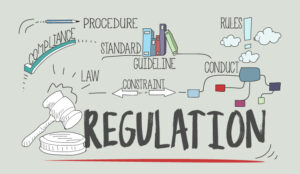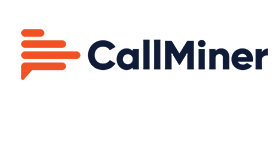CallMiner share insights from a range of industry experts on the to topic of how call centre regulations should be improved.
Call centre regulations are complex. The Fair Debt Collection Practices Act (FDCPA), for instance, requires debt collectors to disclose the purpose of their written or oral communications at the start of every contact.
Additionally, the FDCPA has strict requirements that stipulate when, where, and with whom a debt collector may communicate with consumers. All of these requirements aim to protect consumers from unfair debt collection practises.
As the debt collection industry continues to grow, more debt collection agencies turn to interaction analytics to improve agent performance while also mitigating compliance risks.
But the debt collection industry isn’t the only industry facing regulatory compliance concerns. PCI DSS, the Payment Card Industry Data Security Standard, applies to all companies that store sensitive cardholder information and aims to protect consumers from the misuse of personal information shared during cash, credit, and debit transactions.
For call centres, PCI DSS compliance means ensuring that appropriate encryption and other network security measures are in place, as well as redacting sensitive personal details in recordings.
Solutions that use speech analytics technology to automatically mute call recording when sensitive information like account numbers, security codes, and other sensitive information is spoken, ensure that such sensitive payment information is not recorded at all.
There are myriad other regulations that apply to call centres as well, from the TCPA (Telephone Consumer Protection Act) to HIPAA (the Health Insurance Portability and Accountability Act of 1996) to myriad state-specific regulations.
Still, call centre regulations aren’t perfect, and there’s plenty of room for improvement. To find out what today’s consumers, businesses, and call centres would improve about call cenre regulations, we reached out to a panel of call center pros and business leaders and asked them to answer this question:
“If you could wave a magic wand to improve one aspect of call centre regulations, what would it be?”
Joe Pores
Joe Pores is the President and CEO of Call 4 Health.
“It’s time to remove the burdensome and unnecessary HIPAA regulations for…”
TAS (telephone answering service) companies who do not deal directly with medical information. Typical TAS companies serve strictly as an overnight messaging service, only collecting contact information from the caller for processing the next business day. Yet they are required by law to be as HIPAA compliant as a major hospital system, costing these small businesses tens of thousands of dollars in coverage that is essentially unnecessary.
Congress should review the regulations with common sense in mind, make compliance equitable and fair based on the kind of information being processed, and pass a de minimis (carve out) exemptions for these small TAS businesses.
Privacy is absolutely critical. But holding a small TAS to the same HIPAA standards as Call 4 Health is inequitable and unfair, and ought to be reviewed and acted upon accordingly by regulators.
Joe Laskowski
Joe Laskowski is the Managing Partner and Chief Marketing Officer at Higher Ed Growth and LeadsCouncil board member. Higher Ed Growth (HEG) is a full-service marketing agency specialising in post-secondary education.
“Adhering to regulations is an integral part of all call centre activities…”
And the Telephone Consumer Protection Act (TCPA) certainly outlines some of the most important requirements. From reassigned number liability to revocation of consent, the TCPA continues to be re-examined in the courts. The present-day rulings shape the environment in which call centres can engage with leads, and it is important for call centres to stay on top of changes.
One pain point for call centres in particular? The variability in TCPA consents. Many clients require specific TCPA statements for their brand, which is hard to scale and automate. It would be more effective for centres to have one client-approved TCPA that can dynamically integrate brand names. It is a much more seamless process for agents and reduces the risk of TCPA statements being missed or misread.
Nancy Gretzinger, EdD
Nancy Gretzinger is a retired 42-year educator, author, speaker, advocate.
“My magic wand would be having an up-to-date Do Not Call list…”
When I tell the caller, it would be nice if they would take a few seconds to acknowledge my request. State that they will put you on the list and say goodbye.
Pam McWilliams
Pam McWilliams is the Senior Director of Customer Experience at Ancient Nutrition. She has 30 years of experience in direct to consumer marketing and customer retention. She is a leader in business development and marketing, taking campaigns successfully from inception to completion.
“If I had a magic wand to improve one aspect of call centre regulations…”
It would be to have one federal law to follow, rather than so many varying state-by-state laws, for making outbound business calls to existing customers.
Although technology allows us to use programming to sort customer lists, it can be burdensome to keep up with all the individual laws. I understand the need to protect consumers who are not existing customers. However, when speaking to your active customer base with special offers, in my opinion it should be easier for a business to manage.
Outbound calling is an excellent tool for a business and for the consumer. For the business, it allows a personal connection with customers, which improves customer retention, increases sales, and provides the consumer the opportunity to ask questions about products, programs, and services.
For example, sometimes we find a customer is not happy with their purchase, so this call gives us the opportunity to do what it takes to satisfy a customer. I am “old school,” so using pre-recorded offers is not my style.
However, being able to use a dialing system really makes for efficient work flow for my business and we can connect our customers with a live person.
If a business takes all the proper steps to execute an outbound calling campaign by following the laws and keeping an internal DNC list, the fear of making a mistake due to a certain state’s calling rules can be why they hesitate to use this very productive form of marketing to existing customers.
Margie Brickner
Margie Brickner is the President and Chief Executive Officer of Reliant Capital Solutions, with 35 years of experience in the collections industry.
“We are long overdue for a comprehensive review and modernisation of…”
The Fair Debt Collection Practices Act (FDCPA) and the Telephone Consumer Protection Act (TCPA). The FDCPA was approved in 1977 and the TCPA was approved in 1991. Neither act has been amended to materially recognise current consumer practises.
For instance, the TCPA specifies many requirements for fax machines and restricts text messages received by cell phones but does not recognise the reality that most consumers use a mobile phone as their primary point of contact. These laws need to be amended to better balance consumer privacy with legitimate business communication.
Tyler Weinrich
Tyler Weinrich is the CEO of W Properties.
“One thing I would change about call centre regulations is…”
The number of times someone can call a specific number over a particular time frame. Let’s say you can’t call the same number (business or person) from a call centre more than 10 times in 1 year. Right now, I get the same “help with your Google listing” or “do you need health insurance” call every 10-14 days.
I get that you have to make calls to do business and make money. I have to do the same in my own company. However, there is a limit. There might need to be stipulations on this rule, like you can’t call more than 10 times per year per live answer. So, if a recipient doesn’t answer the phone 10 times in a row, you should probably not call them 11, 15, or 20 times.
Another change I would make is if you are offering a productor service in multiple states, you should be required to call from an 800 number and not a local area code. The recipients of these calls would know more than likely that if an 800 number popped up, it is a call centre or automated voicemail call. They can then choose to answer or not.
Tricking people into answering a call by using a local area code might get you a few more conversions but really makes people angry. If you operate only in one state, you can still use a local number, but anything wider than that and you need to present yourself as a foreign caller/company.
Chris Wain
Chris Wain is the Sales Director at Africa Travel.
“Companies should save examples of their best and worst calls…”
The benefit of doing this is that it gives you a fantastic training guide for new starters in call centres, helping them to learn how to handle a wide range of situations when dealing with calls. This ensures they have a good groundsheet for their own calls, as well as examples of how they can continually improve and grow.
Analysing these calls means you can find common language or signals within the calls which trigger positive reactions from the callers. In turn, this helps you to tailor your approach to build great rapport with as many customers as possible.
Donald E. Petersen
Donald E. Petersen is a Florida lawyer who represents consumers in TCPA lawsuits.
“I would strengthen the FCC Orders and…”
Regulations concerning strict liability against the sellers when the call centres violate the DNC list. The most impactful measure would be to protect the FCC’s imposition of strict liability of sellers in many situations rather than employing archaic agency principles, which typically allow sellers to easily escape accountability.
Sellers should be liable unless they’ve regularly monitored the call campaigns, materials, TCPA compliance (e.g., scrubs for cell phones and DNC registry), etc. In other words, the Safe Harbor regulations should be revised.
Taking such measures would help reduce pressure on sellers and call centres to engage in a race to the bottom which, if continued to be effectively left unchecked, is likely to lead to stricter statutory mandates.
Osiris Parikh
Osiris Parikh is a consultant for Summit Mindfulness. He is a certified inbound sales professional and SEO strategist.
“In too many cases, I have seen call centres brush aside the importance of caller forecasting…”
This neglect of data leads to under or over-staffing, which will overload employees as well as cause a longer wait time for customers, which negatively impacts their experience. These problems not only affect an organisation’s image, but they also lead to a depletion of profits; using too much time to resolve customer issues.
By leveraging caller forecasting, call centres will have a better understanding of when customers call and be prepared to be staffed appropriately to handle customer requests. Although it may not seem important, caller forecasting is the backbone of an effective call centre.
Mandeep Kwatra
Mandeep Kwatra is a digital customer experience design and transformation professional with 19+ years of experience in customer service, call centre, digital solutions, automation, and business transformation.
“The two methods by which an aspect of unsolicited/telemarketing call regulations could be improved…”
- Real-time DNC update: We all get unsolicited calls at times about a promotional plan, a vacation deal, or credit card. The telephony dialer software solutions should develop an API to connect to the DNC registries maintained by the enterprise and the government body, and with the help of AI a number should be checked before it’s dialed out (in case it has missed the initial data cleansing). This will ensure that customers don’t get unnecessary calls and help create brand credibility between the customer and the brand. This should also apply to messaging marketing blasts. The Telecom regulation in call centres needs to cover beyond voice and SMS. It now needs to cover areas like Apple business messaging, WhatsApp, and Facebook messenger as they all hold private access to a customer’s life.
- The use of data and analytics in the telemarketing programs by the call centres. Most of the outbound small contact centres don’t, and maybe won’t, do it. But this needs to be regulated as well. If your brand has called a customer and the customer has disconnected the call on two occasions in less than 10 seconds of the call, the intent should be recorded as the customer does not want promotional calls and should be moved away from the list.
These will not only help customers but also help companies in putting their money where their mouth is and targeting campaigns to people who want these promotional calls and provide a better ROI with a spend on a controlled audience group.
Travis Ogden
Travis Ogden is the contact experience agent at The Zebra. With over 5 years in the sales/customer experience, Travis has seen (and heard) it all.
“There needs to be more education in call centres…”
Customers are often given false or misleading information. Sometimes maliciously, but mostly because the correct information is not available. Especially in my last two jobs, it wasn’t uncommon to put people on hold to have a question answered only to receive shoulder shrugs, meaning there was no real answer to give the customer — either because the information they had received was false or we as the agents didn’t have the information on hand.
One of my previous employers was a TV provider that sold a sports package for about $15 to hopeful baseball fans looking to see every game. In reality, the “sports package” only unlocks the channel of the broadcast, but the actual game is blacked out unless they buy the far-more-expensive baseball-specific package. I got those calls ALL THE TIME. It’s a difficult conversation.
I also dealt with angry customers confused about promotions, like free HBO auto-renewing and charging an account if not removed by the customer, when they were told it would automatically roll off.
The company didn’t want to credit anything so it would turn into a Supervisor Call. If they credit, great, if not, the customer wants to cancel and then Retention will just credit it for them anyway. If the customer got the correct information at first contact, that saves three additional calls and we don’t have to credit accounts.
It’s far more difficult to convince a customer the information you’re providing is accurate if they’ve already been told something different.
Kartik Prajapati
Kartik Prajapati is a self-motivated mechanical engineer.
“If I could wave a magic wand, I would like to improve the point to point solution to the customer…”
Sometimes, you have a minor, simple problem, and the call centre takes you through so many processes to solve that problem. When you solve that problem, you discover that it wasted a lot of time behind that solution. As a result, you might never call customer care again, even if you really had a problem.
Bryan M. Waring
Bryan M. Waring is a composer/songwriter from the Nashville area, as well as the owner of his own freelance music production business, Music COLL.
“If I could wave a magic wand to improve one aspect of call centre regulations…”
It would be to make sure that I talk to the least number of people possible. While most people (and presumably everyone) would agree that the wait while put on hold with awful “elevator music” is the worst, I would argue that it wouldn’t be as bad so long as the person did their job correctly and sent you directly to the phone of a person that can fix the query you have.
There have been a lot of instances where one call specialist transfers you over to another one, who then sends you to a new one, and so on, and so on… to the point it becomes a wild goose chase. Honestly, it should be “one-and-done,” which would be possible with them being knowledgeable of who will immediately fix the problem, and transferring me over to their line.
Riley Panko
Riley Panko is a Senior Content Developer and Marketer at Clutch, a Washington, D.C.-based research, ratings, and reviews platform for B2B services. She conducts relevant research that aims to help consumers enhance their business and select the services and software best-suited to their needs.
“My magic wand would involve technology already being implemented…”
The STIR/SHAKEN initiatives that hope to validate trustworthy phone calls and combat malicious robocalls.
Clutch recently published a survey that found that 52% of people receive robocalls daily. A subsequent report revealed that 67% of people are unlikely to pick up a phone call from a number they do not recognise – creating issues for legitimate outbound phone outreach.
The FCC is working to implement a combination of the “Secure Telephone Identity Revisited” (STIR) standard and the “Signature-based Handling of Asserted information using toKENs” (SHAKEN) standard.
Together, this technology will actively validate legitimate phone numbers by checking for the presence of a certificate, distributed by a trusted policy administrator. Past efforts to fight robocalls have involved retroactive, passive approaches – the Do Not Call list, for example, only works by going back and punishing robocallers who have already pestered thousands, if not millions, of people (and it doesn’t even work that well at that).
Brian Zotti
Brian Zotti is the Co-Founder of i-CAN Consulting, a firm that empowers businesses with the capabilities to reach their full potential. Brian manages i-CAN’s client portfolio for the e-learning/ education, SaaS, and financial services verticals bringing expertise in process improvement, operations strategy, contact centre practises and technology, and growth mindset.
“If I were to wave a magic wand and change something in this arena…”
It would have to do with the call recording laws, and more specifically, the requirement which states that on every call (where a two-party awareness and or consent is needed) the agent or system needs to advise callers that the conversation may be recorded for quality and training purposes.
Why this regulation?
The basis of my selection is in the customer experience it provides. At best, the customer just waits patiently for the standard message to be delivered before moving into the actual reason for the conversation. At worst, it increases the customer’s level of frustration. Since there are so many different spheres of influence at play (state, federal, each international country or province, GDPR), the default protocol is almost always to offer the disclaimer to every caller just to be safe.
The truth is, the disclaimer is a nearly universally known warning which customers have come to not only expect, but anticipate the frustration of having to go through the disclaimer each and every time he or she reaches out.
Furthermore, the disclaimer does not actually offer the customer any insight into how the call could be used outside of quality or training purposes. What I mean by this is that if the call is used for any other purpose (legal cause of action, or if it’s played as part of a celebration for an agent that did a great job), the caller that was recorded might not have understood the disclaimer shared with him or her to include these as potential uses.
Lastly, callers are beginning to expect to have access to the recordings if they want to prove a point or reference something that was said on their call but isn’t noted in the account. Most centres won’t share calls with the customer unless subpoenaed, and even then, it may be too late or too burdensome to find.
To combat this issue, customers are beginning to record their own calls using recording apps, but since customers aren’t given the same training around ensuring all parties know about the recording (in some jurisdictions) they are unknowingly opening themselves up to legal issues. The source of this expensive, inefficient, and now risky situation is the monotonous and ineffective requirement to advise callers about the recording activity.
Rabbi Shlomo Slatkin
Rabbi Shlomo Slatkin, MS, LCPC, is a Certified Imago Therapist at Slatkin Communications.
“One aspect of call regulations that I wish could be improved would be…”
The way the callers listen to and respond to their call leads. Actually listening to the person on the other end – even when he/she is upset or has some negative feedback or questioning – can feel threatening to the call centre employee, and it is precisely in those very moments that would serve the employee well to repeat back what the lead is saying and summarise it so the person on the other end feels deeply heard and validated. Saying something like, “So what you’re saying is x, well that makes a lot of sense,” will do a world of good for call centre employees to know how to handle difficult customers!
Alberto Navarrete
Alberto Navarrete is the General Manager of Frisco Maidi in Dallas.
“I’ll make the service 24/7…”
Sometimes, even if you call in the hours just before a call centre is about to close, I feel like they rush your call to end it as soon as possible. I hate it; it feels like they rush you.
John D. Pascoe
John D. Pascoe is licensed to practise in the State of Texas and in front of the U.S. Court of Appeals, 5th Circuit.
“A large percentage of my practise is handling insurance claims for injured parties…”
I spend an egregious amount of time on my phone trying to get in contact with insurance agencies. There are some times when this is a great cause of stress; other times it is a breeze. I have noticed the one defining factor in the stressful calls is the long periods of time when I am at the mercy of an automated system.
I understand that these systems are necessary to handle the volume of calls that centres may receive, but if I could wave a magic wand and change one aspect of all call centres, I would add an operator option to every automated system. I would happily wait on hold for a while longer if I knew I would be talking to a real person as opposed to a computer.
Josh Wardini
Josh Wardini is the Co-Founder of Serpwatch.
“As a long-time marketer…”
I have had the luxury of experimenting with many channels of contacting potential clients. Eventually, any marketing effort grows too great to handle as a one-man show, so a team must be assembled.
This is where call centres and telesales/marketing get tricky. Channels like email offer a very scalable and respectful outbound approach. You can easily monitor your team’s efforts and mentor your organisation by opening an email thread. Call regulation does not allow for such a log of communication given federal law 18 U.S.C. 2511(2)(d), the “one-party consent” law. As a result, it’s much more difficult to train a telesales marketing team.
If I could change the regulation, I wish we could record via a third-party service that anonymises the voices and caller data simply to use the verbal call logs as training material.
This blog post has been re-published by kind permission of CallMiner – View the Original Article
For more information about CallMiner - visit the CallMiner Website
Call Centre Helper is not responsible for the content of these guest blog posts. The opinions expressed in this article are those of the author, and do not necessarily reflect those of Call Centre Helper.
Author: CallMiner
Published On: 2nd Apr 2019
Read more about - Guest Blogs, CallMiner






 CallMiner, the leader in CX automation, combines AI agents and human expertise to optimise interactions, cut costs, and boost engagement. Advanced analytics transform conversations into intelligence that drives improvements and automation for global brands.
CallMiner, the leader in CX automation, combines AI agents and human expertise to optimise interactions, cut costs, and boost engagement. Advanced analytics transform conversations into intelligence that drives improvements and automation for global brands. 











